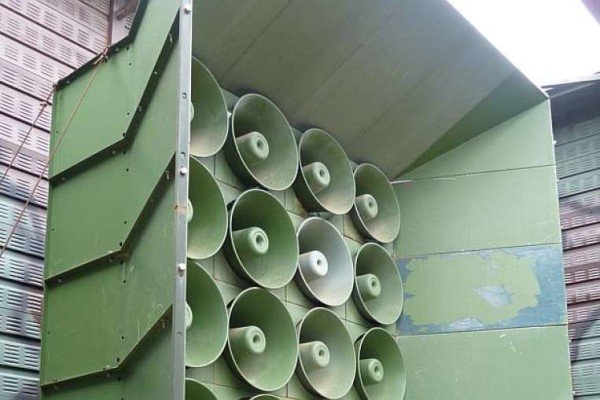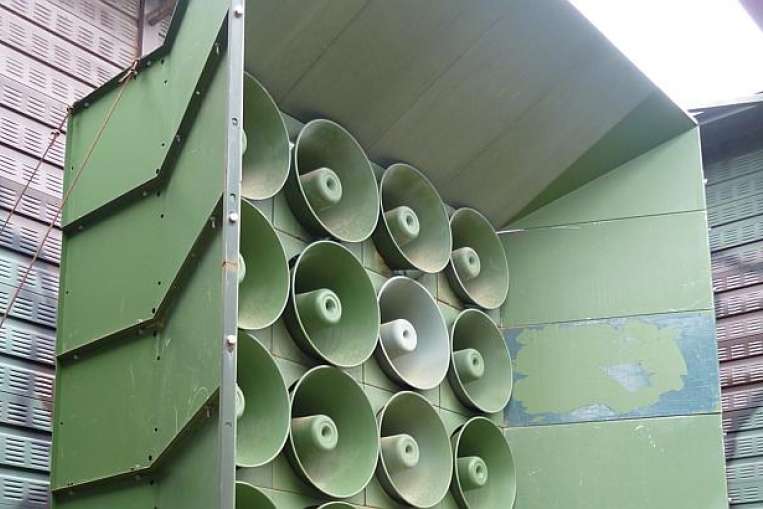South Korea has decided to resume loudspeaker propaganda broadcasts into North Korea in response to Pyongyang’s claim to have tested a hydrogen bomb.
The move has led North Korea to begin similar broadcasts of its own, the South’s Yonhap News Agency said.
Meanwhile, the UN has agreed to draw up new measures against North Korea.
Although there is skepticism that North Korea carried out the test as claimed, its actions have been condemned internationally.
If the underground test is confirmed, it would be North Korea’s fourth nuclear test and its first of the H-bomb, which is more powerful than an atomic bomb.
South Korea turned the speakers back on at noon local time on January 8.
The loudspeakers – at 11 locations along the border – blast Korean pop, news and weather reports and criticisms of the North over the border.
The broadcasts irritate the authorities in Pyongyang, and North Korea has previously threatened to use force to stop them.
Seoul agreed to stop them last year in a deal with the North to resolve particularly high tensions after a border skirmish.
However, presidential security official Cho Tae-yong announced on January 7 that they would resume, saying North Korea’s test claim had been a “grave violation” of the deal.
On January 7, the US said President Barack Obama and the leaders of South Korea and Japan had “agreed to work together to forge a united and strong international response to North Korea’s reckless behavior”.
South Korea’s presidential office said the international community “must make sure that North Korea pays the corresponding price” for the nuclear test, reported Yonhap news agency.
South Korea has also begun limiting entry to the Kaesong industrial park in North Korea, which is jointly run by both countries. Only those directly involved in operations there will be allowed to enter from the South, said Seoul’s Unification Ministry.
Japan’s PM Shinzo Abe said the test was “a serious threat to our nation’s security and absolutely cannot be tolerated”.
He told parliament Japan would “deal with this situation in a firm manner through the co-operation with the United Nations Security Council”.
Shinzo Abe also added that Japan might take unilateral action, saying it is “considering measures unique to our nation”, without detailing what those measures might be.
Hydrogen bombs are more powerful and technologically advanced than atomic weapons, using fusion – the merging of atoms – to unleash massive amounts of energy.
Atomic bombs, like those that devastated two Japanese cities in World War Two, use fission, or the splitting of atoms.
Many experts, including those from South Korea and the US, say the estimated power of January 6 blast fell far short of what would be expected from a hydrogen bomb.
Some analysts have suggested it is possible Pyongyang tested a “boosted” atomic bomb, which uses some fusion fuel to increase the yield of the fission reaction.
The US and nearby countries including Japan are carrying out atmospheric sampling, hoping to find leaked radioactive material, which would give clues as to what kind of device was tested.
Correspondents say it took about 55 days after the last test to be able to determine the exact nature of it.
